Steering the global system towards
sustainable energy use for all
Our team and research associates are regularly called upon by global governments, public and private sector organisations and civil society stakeholders to provide evidence, contribute to policy debates, and share the latest thinking on cutting-edge academic research across the broad energy spectrum we span. Rigorous academic research underpins our work with policymakers and business leaders, and has appeared in high-impact research journals including Nature, Journal of Industrial Ecology, The British Medical Journal, and Environmental Research Letters.
Our policy work is led by Dr Radhika Khosla, Associate Professor at the School of Geography and the Environment and Research Director of the Oxford India Centre for Sustainable Development. Radhika led the Oxford Martin School Future of Cooling Programme that examined interlinkages between global cooling demand and the United Nation’s Sustainable Development Goals. Steering the global system towards sustainable energy use for all in the transition to a zero-carbon energy future is a priority for the ZERO Institute.
The ZERO Institute Associate Scheme
We aim to establish a vibrant network of ZERO Institute Associates, to underpin our goal of catalysing multi-disciplinary work on the zero-carbon energy transition.
Our Associates hold senior roles at external institutions (other than the University of Oxford), which may include universities, industry, enterprise, think tanks, civil society organisations and government bodies. They demonstrate an outstanding track record in fostering zero-carbon energy systems, in one or more of the ZERO Institute’s themes.
To learn more about the ZERO Institute Association scheme, please contact zero@eng.ox.ac.uk.
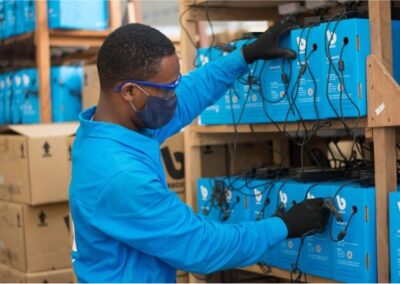
Boosting battery reliability for off-grid energy access
The Faraday Institution ‘MaxBatt’ project developed rapid diagnostics, ageing models, and screening methods for lithium-iron-phosphate batteries, aiming to improve reliability and extend lifespan in rural off-grid solar storage systems. Read more
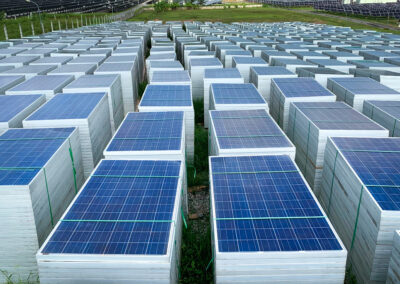
Circular Electrical and Electronics Project
Enabling a low-carbon, Circular Economy for Electrical and Electronic Equipment that reduces the mining of rare, expensive and critical minerals. Read more

SAGEflex: Safeguarded AI Agents for Grid-Edge Flexibility
SAGEflex aims to develop a software platform for training, testing, benchmarking, and scaling up AI-based solutions to unlock power system flexibility from grid-edge devices. Read more

Project LEO (Local Energy Oxfordshire)
Project LEO demonstrated how local energy systems can accelerate the transition to a zero-carbon energy future through innovative technology and community engagement. Read more

Next Generation Battery Energy Storage
Energy storage is critical to decarbonization in a range of sectors. As we approach the limits of Li-ion technology, developing next generation battery chemistries is crucial to delivering performance gains, as well as to ensuring a sustainable, resilient supply chain. Li-sulfur batteries are one such technology. Read more
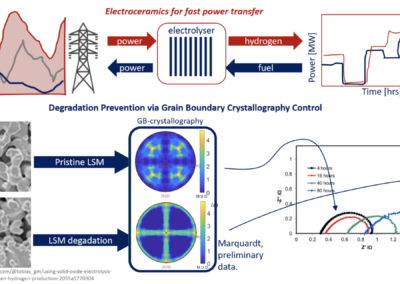
Solid Oxide Electrolysers for the transition to net ZERO
We tune grain and phase boundaries for electro-ceramics for electrolysers. Critical reactions in electro-ceramics depend on the crystallography of these boundaries and their stability at constantly changing conditions Read more
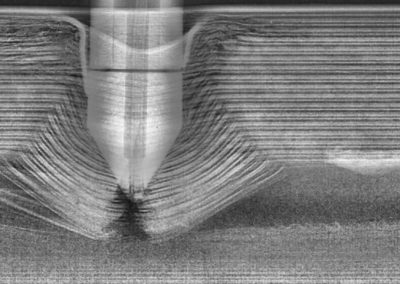
The Science of Battery Safety
Battery energy storage is a cornerstone of de-carbonistation plans. Our research on the Science of Battery Safety is ensuring that batteries are safely deployed in a range of demanding applications. Read more
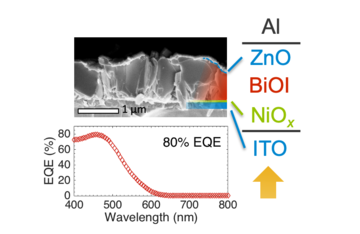
Materials for next-generation photovoltaics
Groups from Chemistry, Physics and Materials are developing a new generation of light-harvesting materials that can increase the efficiency and cost-effectiveness of photovoltaics for residential and utility-scale electricity generation, as well as for energy harvesting to power IoT electronics Read more

Optimizing Energy Use in Universities: The Role of Digital Twins in Closing Performance Gaps.
How can digital twin technology and building energy simulations help identify performance gaps in operational buildings: a case study of the Andrew Wiles Building at the University of Oxford. Read more

Holywell House: A living lab towards real-world zero-carbon energy buildings
The ZERO Institute has created a living lab in Oxford to explore, test, and demonstrate novel techniques and technologies on the road to zero-carbon energy buildings: optimising control, reducing demand, increasing efficiency, and integrating renewables. Read more

Energy Demand Observatory and Laboratory (EDOL)
EDOL collects and shares energy use data from UK households for research and policy to accelerate a successful zero-carbon future Read more

Informing UK policy for building resilience to extreme heat
Working closely with the UK’s Environmental Audit Committee to develop an inquiry on the unpreparedness to extreme heat, resulting in an official report on ‘Heat resilience and sustainable cooling’. Read more
More from ZERO Institute

About the ZERO Institute
We want to shape the transition to a just and fair global zero-carbon energy system, through research that unifies technology, policy, and people.

Our People
The ZERO Institute is a multi-disciplinary hub for zero-carbon energy research, bringing together academics from across the University of Oxford.

Latest News
Catch up on the latest news and events to see how ZERO is driving the transition to a zero-carbon energy system.